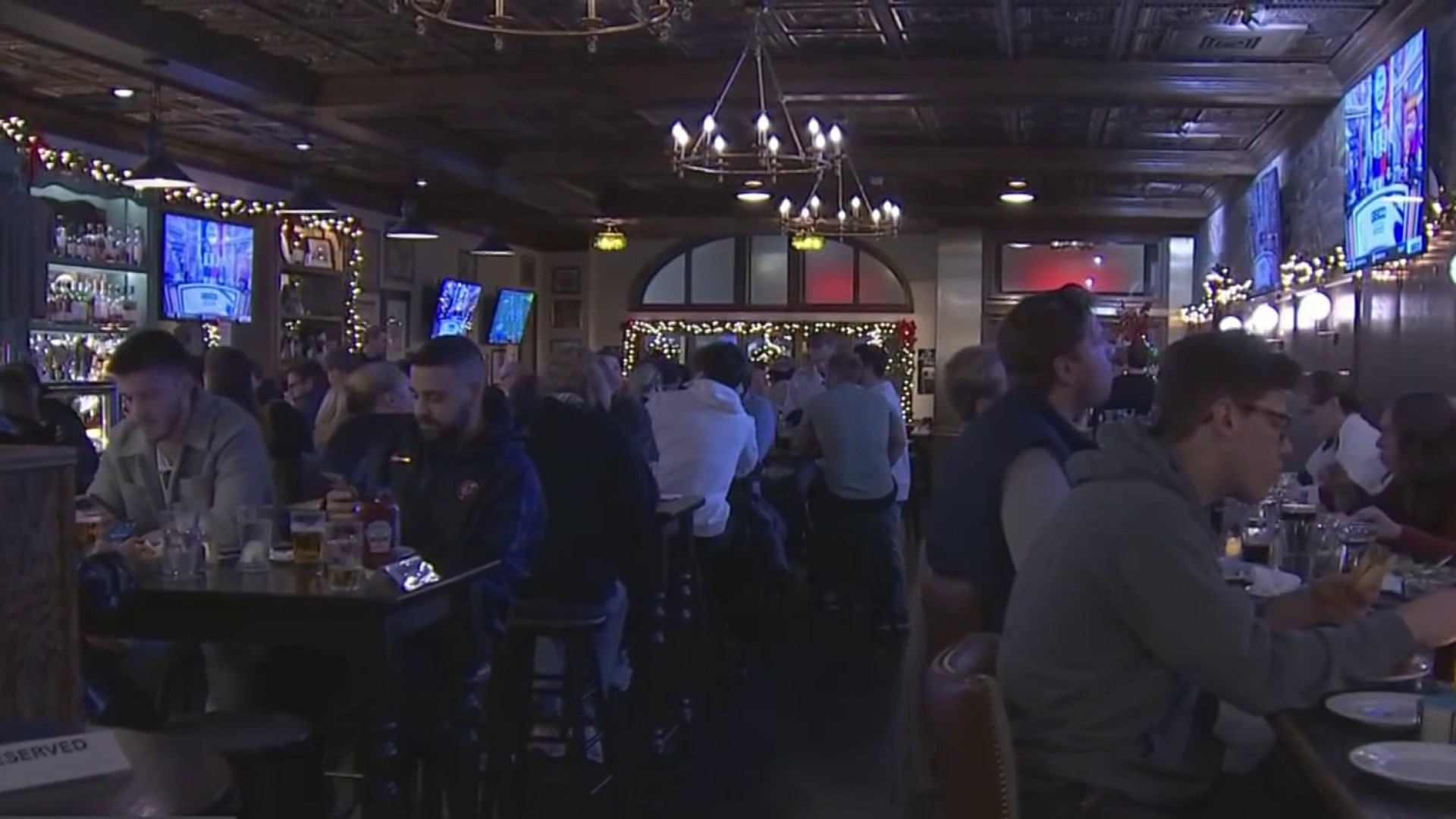Authorities are preparing to restrict access to parts of downtown Washington, D.C., more than a week before Inauguration Day amid warnings that demonstrators and armed groups may plan to disrupt ceremonies or commit more violence.
As federal and local officials coordinate enhanced security following a deadly riot at the U.S. Capitol and reports that far-right extremists are organizing ahead of Jan. 20, D.C. Deputy Mayor John J. Falcicchio said Tuesday that an inauguration perimeter would be established “in the coming days."
Go here for the latest updates on Wednesday, Jan. 13, 2021
We've got the news you need to know to start your day. Sign up for the First & 4Most morning newsletter — delivered to your inbox daily. Sign up here.
Anyone trying to access the restricted area may be asked why they want in and may need to provide proof they have an essential purpose there, Falcicchio said. Security screenings will also be in effect.
“This is similar to previous inaugurations — except the inauguration perimeter will be established and operational for several days,” he said.
Plan extra time for any travel in the area stretching from the White House to the Capitol, Falcicchio said. Streets along the National Mall are expected to be closed.
Local
Washington, D.C., Maryland and Virginia local news, events and information
Federal officials also plan to close more roads and access to parking garages around the White House, including from 19th to 14th streets and K Street to Constitution Avenue.
Starting 8 a.m. Thursday, all parking garages near the White House will also be blocked off, and cars in any garage after that time will remain there until after the Inauguration.
Fencing already surrounded the U.S. Capitol, White House and U.S. Supreme Court by Tuesday afternoon. News4 learned more fencing would be erected around the Washington monument.
These are the road closures in effect Tuesday in downtown D.C.:
- Independence Avenue between Washington Avenue, Southwest, and Second Street, Southeast
- Constitution Avenue between First Street, Northwest, and Second Street, Northeast.
- East Capitol Street between First and Second streets
Residents and leaders are concerned about the possibility of more violence and armed groups demonstrating before and on Jan. 20, the day President-elect Joe Biden and Vice President-elect Kamala Harris are set to be sworn into office.
D.C. Police alerted morning commuters that traffic restrictions could start after 6 a.m. Tuesday in the downtown area, but didn’t immediately provide a detailed list of closures or parking changes.
“This is the beginning of the installation of the inauguration perimeter around the White House, the Mall, the Capitol and parts of downtown,” Bowser said.
Bowser said Tuesday she is considering the possibility of closing some or all hotels in the city, particularly those near the inaugural perimeter.
Bowser joined Virginia Gov. Ralph Northam on Tuesday afternoon to welcome and thank Guard troops deployed to D.C. from the commonwealth.
"I realize a lot of you have jobs, have families, that you have to leave behind for the next month," Northam said. "I can't tell you how important this mission is... to help defend democracy."
Concerns Over Inauguration-Related Violence Prompt Longer, More Noticeable Security Effort
Inauguration Day will come two weeks after crowds of President Donald Trump’s supporters overwhelmed U.S. Capitol Police officers and rioters forced their way into the building, temporarily stopping the Electoral College vote count.
In the aftermath of the shocking collapse of safety measures, officials are expanding the scope of inauguration security — and the duration of protective measures that could impact daily life for those who live and work near the National Mall.
The U.S. Secret Service will start National Special Security Event operations Wednesday, six days earlier than originally planned, said Chad Wolf, the acting Department of Homeland Security who has since resigned.
Trump declared a federal emergency in the District from Monday through Jan. 24, giving federal assistance and money to the city.
By Saturday, about 15,000 National Guard members are expected in D.C. to help protect the U.S. Capitol and surrounding buildings in light of last week's deadly attack. Bowser declined to comment Tuesday on whether her administration is considering arming those troops.
Tours of the Washington Monument have stopped until Jan. 24 because of credible threats. D.C.’s mayor also extended a temporary ban on indoor dining and barred museums from opening until 5 a.m. Jan. 24, after the inauguration.
Those efforts come after Bowser requested that the National Park Service and Department of the Interior cancel permits for demonstrations on Inauguration Day.
D.C. Mayor Muriel Bowser, along with Maryland Gov. Larry Hogan and Virginia Gov. Ralph Northam, issued a joint statement asking people to stay away.
“Due to the unique circumstances surrounding the 59th Presidential Inauguration, including last week’s violent insurrection as well as the ongoing and deadly COVID-19 pandemic, we are taking the extraordinary step of encouraging Americans not to come to Washington, D.C. and to instead participate virtually,” the statement read.
Locally, efforts are mounting to discourage visitors. Indoor dining at restaurants is suspended and museums can’t open until 5 a.m. Jan. 24 for public health and safety, D.C.’s mayor ordered.
Citizens are also undertaking efforts they say could help keep their neighbors safe. The Don’t Rent DC campaign asks people to refrain from renting out short-term accommodation like Airbnbs, or at least question people to screen out extremists.



